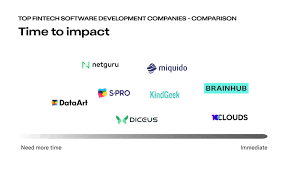Software development is the process of creating, designing, and maintaining applications and software programs. It involves the use of various programming languages, tools, and frameworks to develop software applications. Software development can be divided into two main categories: front-end development and back-end development.
Front-end development is the process of creating user interfaces (UIs) for applications or websites. This includes designing the look and feel of a website or application as well as coding the actual user interface components such as buttons, menus, forms, and other interactive elements. Front-end developers use HTML, CSS, JavaScript, and other technologies to create UIs that are visually appealing and easy to use.
Back-end development focuses on building the underlying functionality of an application or website. This involves writing code that interacts with databases or other systems to store and retrieve data. Back-end developers use languages such as PHP, Java, Python, Ruby on Rails, Node.js, and others to build server-side logic for web applications or websites.
Software development is an ever-evolving field with new technologies being developed all the time. As a result, software developers must stay up to date on new trends in technology in order to remain competitive in their field. They must also have strong problem solving skills in order to effectively debug code when things go wrong.
Software developers are highly sought after by companies of all sizes due to their ability to create innovative solutions that help businesses reach their goals faster and more efficiently than ever before. As a result, software developers can expect job security in their field for many years to come.
The Advantages of Software Development: High Demand, Varied Roles, Flexibility, Creative Problem Solving, and Lucrative Pay
Challenges in Software Development: High Cost, Time Intensive, and Increasing Complexity
- High Cost – Developing software can be expensive due to the cost of labor and resources needed to complete a project.
- Time Intensive – Software development projects can take a long time to complete, as they require extensive planning, coding, testing and debugging.
- Complexity – As technology advances, software development becomes more complex with new tools and techniques that must be mastered in order to create successful applications.
High Demand
In today’s digital age, software development has emerged as a highly sought-after field with an abundance of job opportunities and tremendous potential for career growth. The demand for skilled software developers continues to skyrocket as businesses increasingly rely on technology to streamline their operations and reach their target audience.
One of the key advantages of pursuing a career in software development is the high demand for professionals in this field. Companies across various industries, ranging from tech giants to startups, are constantly on the lookout for talented individuals who can develop innovative software solutions to meet their specific needs.
The rapid advancements in technology have led to an exponential increase in the need for software developers. From mobile applications to web platforms, artificial intelligence to data analytics, there is an ever-growing list of areas where software development skills are in high demand. This means that software developers have a wide range of options when it comes to choosing their area of specialization or industry they want to work in.
Moreover, the high demand for software developers translates into excellent job prospects and competitive salaries. Skilled professionals in this field often enjoy a plethora of job opportunities and have the flexibility to choose from multiple offers. Additionally, as technology continues to evolve at a rapid pace, there is a constant need for software developers to upgrade their skills and stay up-to-date with emerging trends, ensuring continuous professional growth.
Furthermore, the dynamic nature of software development allows individuals to explore various career paths within the industry. From becoming a full-stack developer proficient in both front-end and back-end technologies, to specializing in areas like mobile app development or data science, there are numerous avenues for growth and specialization within this field.
In conclusion, the high demand for software developers presents a compelling advantage for those considering a career in this field. With abundant job openings and opportunities for career growth across diverse industries, pursuing a path in software development can lead to long-term success and fulfillment.
Variety of Roles
One of the major advantages of software development is the wide range of roles available within the field. Whether you have a passion for designing user interfaces, working with databases, or managing the deployment and operation of software systems, there is a role for you in software development.
Front-end developers are responsible for creating visually appealing and user-friendly interfaces. They work with HTML, CSS, and JavaScript to bring designs to life and ensure a seamless user experience. Their focus is on making sure that websites and applications look great and are easy to navigate.
On the other hand, back-end engineers work behind the scenes to build the functionality that powers applications. They develop server-side logic, work with databases, and handle data storage and retrieval. Back-end engineers ensure that applications are secure, scalable, and performant.
DevOps professionals bridge the gap between development and operations teams. They are responsible for automating processes, managing infrastructure, and ensuring smooth deployment and operation of software systems. DevOps professionals play a crucial role in streamlining development workflows and improving collaboration between teams.
Apart from these specific roles, there are also opportunities in specialized areas such as mobile app development, data science, machine learning, and cybersecurity. The variety of roles in software development allows individuals to find their niche based on their interests and strengths.
Furthermore, this variety also offers room for growth within the industry. As professionals gain experience in one area of software development, they can explore other roles or even transition into leadership positions where they can guide teams or manage projects.
Overall, the abundance of roles available in software development provides individuals with opportunities to specialize in their areas of interest while also fostering continuous learning and professional growth. Whether you enjoy front-end development or prefer working on complex back-end systems or thrive in a DevOps environment – there is a place for you in this dynamic field.
Flexibility
Flexibility is a significant advantage of being a software developer. Unlike many traditional professions, software developers often have the freedom to work remotely or choose flexible working hours that align with their lifestyle needs.
Remote work has become increasingly popular in recent years, and software development is one of the fields that has embraced this trend. With the advancements in technology and communication tools, developers can effectively collaborate with their team members and clients from anywhere in the world. This allows them to work from the comfort of their own homes, coffee shops, or even while traveling.
The ability to work remotely provides numerous benefits. It eliminates the need for commuting, saving both time and money. Developers can avoid rush hour traffic or crowded public transportation, resulting in reduced stress levels and increased productivity. Additionally, remote work allows for a better work-life balance, as it enables individuals to spend more time with their families or pursue personal interests.
Flexible working hours are another perk of being a software developer. Many companies understand that developers often work best during specific hours when they are most productive or creative. As long as deadlines are met and collaboration with team members is maintained, developers can often set their own schedules within reasonable boundaries. This flexibility enables them to optimize their workflow and achieve a better work-life integration.
Moreover, flexible hours allow software developers to adapt to different circumstances that may arise in their personal lives. They can attend appointments or take care of family responsibilities without sacrificing their professional commitments. This level of autonomy empowers developers to manage their time effectively and maintain a healthy work-life harmony.
In conclusion, flexibility is a significant advantage for software developers. The ability to work remotely and choose flexible hours not only enhances productivity but also promotes a better quality of life by enabling individuals to tailor their work arrangements according to their unique needs and preferences.
Creative Problem Solving
One of the significant advantages of software development is the opportunity it provides for creative problem solving. Writing code requires developers to think critically, analyze complex problems, and come up with innovative solutions. This process can be both challenging and rewarding, making software development an exciting and fulfilling field.
Software developers encounter various problems during the development process. They need to understand the requirements, identify potential roadblocks, and devise efficient strategies to overcome these challenges. This requires them to think outside the box and find creative solutions that meet the needs of users and stakeholders.
Creative problem solving in software development involves breaking down complex issues into smaller, manageable tasks. Developers analyze each component and consider different approaches to solve them effectively. They explore various programming techniques, algorithms, and frameworks to find the most efficient solution that meets the project’s requirements.
The process of finding creative solutions in software development often involves collaboration with other team members. Developers discuss ideas, share insights, and brainstorm together to come up with innovative approaches. This collaborative environment fosters creativity as different perspectives are considered, leading to better problem-solving outcomes.
The satisfaction derived from successfully solving a challenging problem is one of the most rewarding aspects of software development. It allows developers to see their ideas come to life and witness tangible results. The ability to overcome obstacles through creative thinking not only enhances their skills but also boosts their confidence in tackling future challenges.
Furthermore, creative problem solving in software development extends beyond finding technical solutions. It also involves considering user experience, usability, scalability, and performance aspects while developing applications or systems. By incorporating creativity into their work, developers can deliver intuitive interfaces and seamless experiences for end-users.
In conclusion, creative problem solving is a fundamental aspect of software development that brings excitement and fulfillment to developers’ work lives. The ability to think critically, find innovative solutions, collaborate effectively with team members, and witness tangible results makes this field both challenging and rewarding. Software developers continuously sharpen their analytical thinking skills, pushing the boundaries of what is possible and driving technological advancements.
Lucrative Pay
Lucrative Pay: The average salary for software developers is quite competitive, making it an attractive career choice for those looking to make a good living.
In today’s digital age, software development has become an integral part of almost every industry. As businesses rely more and more on technology to streamline their operations and reach their target audience, the demand for skilled software developers has skyrocketed. This high demand has led to a significant increase in salaries within the field.
Software developers are well-compensated for their expertise and skills. With the constant need for new applications, websites, and software programs, companies are willing to invest in top talent to ensure they stay ahead of the competition. As a result, software developers often enjoy higher-than-average salaries.
The lucrative pay in software development is not limited to any specific sector or location. Whether you work for a tech giant in Silicon Valley or a small startup in a bustling city, the earning potential remains strong across the board. Additionally, many software developers have the flexibility to work remotely or freelance, allowing them to tap into global opportunities and potentially earn even higher incomes.
Furthermore, as technology continues to advance and new programming languages and frameworks emerge, experienced software developers who keep their skills up-to-date can command even higher salaries. Continuous learning and staying on top of industry trends can lead to promotions and increased earning potential within this ever-evolving field.
It’s important to note that while lucrative pay is undoubtedly an enticing aspect of software development, it should not be the sole motivator when choosing a career path. Passion for coding, problem-solving abilities, and a genuine interest in technology are equally important factors that contribute to long-term success and job satisfaction in this field.
Overall, the attractive compensation packages offered within the software development industry make it an appealing choice for those seeking financial stability and growth opportunities. With high demand projected to continue well into the future, pursuing a career as a software developer can provide not only a good living but also the potential for a rewarding and fulfilling professional journey.
High Cost – Developing software can be expensive due to the cost of labor and resources needed to complete a project.
High Cost – Developing software can be an expensive endeavor due to the cost of labor and resources required to complete a project. The complexity of software development often necessitates a team of skilled professionals, including developers, designers, testers, and project managers. Each team member’s expertise comes at a price, adding to the overall cost.
The development process itself requires specialized tools and technologies that can also contribute to the high cost. Software licenses, development environments, and other necessary resources can quickly add up. Additionally, there may be ongoing expenses for maintenance, updates, and support after the software is deployed.
Furthermore, unforeseen challenges or changes in project requirements can lead to additional costs. As software development projects are often iterative and dynamic in nature, modifications or enhancements may need to be made throughout the process. These changes can result in increased labor hours and extended timelines, ultimately impacting the overall budget.
For small businesses or startups with limited financial resources, the high cost of software development can pose a significant challenge. It may require careful budgeting or seeking alternative funding options to accommodate these expenses.
However, it is important to note that while software development can be costly upfront, it often yields long-term benefits for businesses. Well-designed and functional software solutions can streamline processes, improve efficiency, enhance customer experiences, and ultimately drive revenue growth. Therefore, it is crucial for organizations to carefully weigh the potential return on investment when considering software development projects.
To mitigate costs associated with software development, businesses can explore various strategies such as outsourcing certain tasks to reduce labor expenses or utilizing open-source technologies that offer cost-effective alternatives. Additionally, proper planning and effective project management can help minimize unexpected expenses by ensuring clear communication and alignment between stakeholders throughout the development process.
In conclusion, while high costs are indeed a con of software development due to labor expenses and resource requirements involved in creating quality software solutions; organizations must carefully evaluate the potential long-term benefits before embarking on such projects. With strategic planning and efficient resource allocation, the advantages of well-developed software can often outweigh the initial investment.
Time Intensive – Software development projects can take a long time to complete, as they require extensive planning, coding, testing and debugging.
One of the significant drawbacks of software development is its time-intensive nature. Developing software applications or programs can be a lengthy process that requires extensive planning, coding, testing, and debugging.
The initial phase of software development involves thorough planning and analysis to understand the requirements and objectives of the project. This includes gathering user requirements, defining functionalities, and creating a detailed project roadmap. This planning phase can take a considerable amount of time as it sets the foundation for the entire development process.
Once the planning is complete, developers begin the coding phase where they write the actual code that brings the software to life. Writing clean and efficient code requires attention to detail and adherence to best practices, which can be time-consuming. Developers need to ensure that their code is scalable, maintainable, and free from bugs or errors.
After completing the coding phase, rigorous testing is conducted to identify any issues or bugs in the software. Testing involves running various test cases, performing system checks, and ensuring that all functionalities work as intended. This iterative process of testing and debugging can be time-consuming as developers need to address any issues that arise during this stage.
Furthermore, software development projects often require collaboration among teams or individuals with different areas of expertise. Coordinating efforts and integrating different components can lead to additional time delays if not managed effectively.
Despite these challenges, it’s important to note that investing time in proper planning and testing ultimately results in a higher quality end product. Rushing through these stages can lead to subpar software with potential vulnerabilities or functionality issues.
To mitigate some of these time constraints, agile methodologies have gained popularity in recent years. Agile methodologies emphasize iterative development cycles with frequent feedback loops from stakeholders. This approach allows for flexibility and faster adaptation to changing requirements throughout the development process.
In conclusion, while software development projects can be time-intensive due to extensive planning, coding, testing, and debugging requirements, it’s crucial to prioritize quality over speed. By investing time in each stage of the development process, developers can ensure that the end product meets the desired objectives and delivers a reliable and efficient solution.
Complexity – As technology advances, software development becomes more complex with new tools and techniques that must be mastered in order to create successful applications.
As technology continues to advance at a rapid pace, software development has become increasingly complex. This complexity arises from the constant introduction of new tools, frameworks, and techniques that developers must master in order to create successful applications. While these advancements bring numerous benefits, they also present a significant challenge for software developers.
One of the main drawbacks of the increasing complexity in software development is the steep learning curve it creates. Developers need to invest a substantial amount of time and effort into understanding and becoming proficient in new technologies. This can be particularly challenging for professionals who are already working on projects with tight deadlines and limited resources. The need to constantly learn and adapt to new tools and techniques can lead to added pressure and stress.
Moreover, the complexity of software development can also result in longer development cycles. With more intricate systems and dependencies, it becomes harder to estimate project timelines accurately. This can lead to delays in delivering software products or even jeopardize project success if not properly managed.
Another consequence of complexity is the increased potential for errors or bugs in software applications. With more intricate technologies involved, there is a higher likelihood of introducing mistakes during coding or integration processes. Identifying and resolving these issues becomes more challenging as well, requiring additional time and resources.
Furthermore, complexity can hinder collaboration within development teams. When each team member specializes in different tools or frameworks, effective communication and knowledge sharing become crucial for successful project execution. Failure to manage this complexity can lead to misunderstandings, misalignments, or even conflicts among team members.
In conclusion, while technological advancements have undoubtedly brought numerous benefits to software development, they have also introduced increased complexity. This complexity poses challenges such as longer learning curves, extended development cycles, increased potential for errors, and potential collaboration issues within teams. It is essential for developers and organizations alike to recognize these challenges and implement strategies that mitigate their impact effectively.




